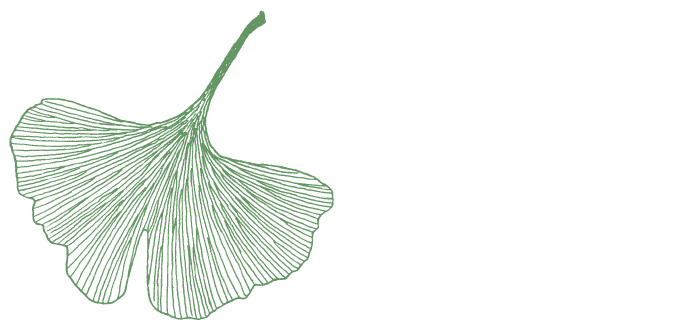Frequently Asked Questions
What is Acupuncture & East Asian Medicine?
East Asian medicine is one of the oldest continuously practiced systems of medicine, dating as far back as three thousand years. East Asian medicine is based on the Daoist belief that we live in a universe in which everything is interconnected. The mind, body, and spirit are not viewed separately, but as parts of an integrated energetic system. Similarly, organs and organ systems are viewed as interconnected structures that work together to keep the body functioning properly.
Many of the concepts emphasized in East Asian medicine have no true counterpart in Western medicine. One of these concepts is qi (pronounced "chee"), which is considered a vital force within the body (and in the universe in general) that is responsible for regulating the human mind and body. Qi flows through the body via channels, or pathways, which are called meridians. There are many meridians: 12 primary meridians, which correspond to specific organs, organ systems, and functions; eight secondary meridians; and many smaller collateral channels that weave the larger channels into an interconnected whole. Imbalances in the flow of qi cause illness, and correction of this flow restores the body to balance.
Acupuncture is one modality that falls under the larger umbrella of East Asian medicine. Acupuncture utilizes the insertion of very thin, sterile needles into specific points on the body to influence the flow of energy and restore balance. Other therapies within the scope of East Asian medicine work in the same way.
What Can Acupuncture and East Asian Medicine Treat?
East Asian medicine is a complete medical system that is capable of diagnosing and successfully treating a wide range of conditions including, but not limited to, the following:
• Eye, Ear, Nose, Throat Disorders such as sinusitis, allergies, ringing in the ears, dizziness, and
sore throat.
• Circulatory Disorders such as high blood pressure, poor circulation, and anemia.
• Gastrointestinal Disorders such as irritable bowel syndrome (IBS), colitis, constipation, diarrhea,
gastritis, abdominal bloating, and hemorrhoids.
• Gynecological / Genitourinary Disorders such as PMS, irregular or painful menstruation,
endometriosis, menopausal symptoms, chronic bladder infections, complications of pregnancy,
morning sickness, kidney stones, impotence, and infertility.
• Immune Disorders such as chronic fatigue, multiple sclerosis, and allergies.
• Emotional and Psychological Disorders such as stress, depression, anxiety, and insomnia.
• Musculoskeletal and Neurological Disorders such as arthritis, fibromyalgia, neuralgia, sciatica, back pain,
tendonitis, bursitis, headaches and migraines, sprains, and muscle spasms.
• Respiratory Disorders such as asthma, emphysema, bronchitis, colds, and flu.
• Acupuncture also treats the side effects of chemotherapy and radiation, diabetes, and dermatological disorders.
• Acupuncture is also often used as a preventative medicine to help prevent disease and promote
health, energy, and vitality.
What can I expect during an acupuncture session?
Your first appointment will be 1.5 hours in length and will include a full review of your health history and current complaint(s) as well as an acupuncture treatment. Before administering your first treatment, I will perform a medical exam that includes the taking of your pulses; the examination of your tongue; and the palpation of your abdomen, joints, and the energetic channels on your body.
Acupuncture treatments most often incorporate points located on the arms from the elbow down, and on the legs from the knees down. Therefore, it is advised that you wear loose, comfortable clothing with easy access to these areas of your body. Acupuncture points on the back, abdomen, scalp, and ear may also be included. It is recommended that you eat a small meal or snack 1 – 2 hours before receiving an acupuncture treatment.
Acupuncture is an extremely relaxing and rejuvenating experience! Acupuncture needles are very thin – about the width of a human hair – and most people do not experience pain upon the insertion of a needle. There are a variety of other common sensations reported such as a feeling of heat, itchiness, distention, heaviness, or a tugging sensation.
Follow-up appointments last one hour and include a brief update on your condition, as well as an acupuncture treatment.
How many treatments will I need?
There is no easy answer to this question. In general, you can expect that the longer you have been experiencing a certain condition or health concern, the longer it will take to resolve. In general, an acute and/or new concern will take less time to resolve. For more chronic, long-term concerns, you can expect that a longer course of treatment will be required.
Remember to keep in mind that acupuncture is not a “magic bullet” cure, and that a commitment is required to receive the immense benefits that this type of medicine has to offer. Often it will take between 3 and 5 treatments to see a significant reduction in symptoms, and it is often necessary for you to continue to receive treatments for a number of weeks after your symptoms disappear to address the root condition that was causing the symptoms/problem. After your body’s balance has been fully restored, monthly or seasonal treatments are ideal for maintaining long-term wellness.
